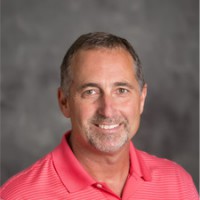Start Your Future with a Biology Education Degree
The Biology Education program at Friends University prepares students to teach biology in grades 6-12. In addition to general education components, professional education course components are required.
Biology Education
Start your future in Biology Education.
Program Highlights
Real-world knowledge. Supportive learning.
Effective science teachers understand how students learn and develop science and engineering concepts and practices. They incorporate disciplinary core ideas, scientific and engineering practices and crosscutting concepts into instruction.
Interactive Classrooms
Collaborative instruction in interactive classroom environments
Passionate Faculty
Accessible educators with real-world experience and expertise
Career Services
Helpful career guidance
Prospective secondary teachers should secure a “teaching major” in the subject field of concentration. These “teaching majors” are not necessarily the same as usual major field concentrations. A grade of “C” or better must be earned in each Natural Science or Education Division required course applied to the major or minor. All education students must achieve and maintain a Professional Education GPA of 2.75 with no grade lower than a “C” in a professional education course.
Program Outcomes
- Content Pedagogy: Effective science teachers understand how students learn and develop science and engineering concepts and practices. They incorporate disciplinary core ideas, scientific and engineering practices and crosscutting concepts into instruction.
- Learning Environments: Teachers work with student and others to create and manage environments that support learning.
- Safety: Effective teachers of science demonstrate and implement safety procedures, material safety practices and the ethical treatment and use of living organisms (appropriate to their area of licensure).
- Impact on Student Learning: Science teachers provide evidence that students’ understanding of disciplinary core ideas, science and engineering practices and crosscutting concepts have increased in sophistication as a result of instruction. Candidates provide evidence representative of the entire population they teach.
- Professional Knowledge and Skills: Effective science teachers are aware of and engage in professional development opportunities to continually improve their knowledge and understanding of science content and pedagogy. They conduct themselves as part of the science education community.
- Engineering, Technology and the Application of Science: The teacher demonstrates an understanding of concepts and practices of engineering, technology and the applications of science that can be used in developing instruction for students.
- From molecules to organisms: Structures and processes: Effective biology teachers demonstrate an understanding of how organisms live and grow.
- Ecosystems: Interactions, energy and dynamics: Effective biology teachers demonstrate an understanding of how and why do organisms interact with their environment and what are the effects of these interactions.
- Genetics and Heredity: Effective biology teachers demonstrate an understanding of how characteristics of one generation passed to the next and how individuals of the same species and even siblings have different characteristics.
- Biological Evolution: Unity and diversity: Effective biology teachers demonstrate an understanding of evolution and evidence shows that different species are related.
Featured Faculty

Lori Moshier
- Assistant Professor of Education; Lead Faculty Secondary Education
- Education
- Bachelor of Arts in Secondary Education, Wichita State University; Master of Education in Teaching and Learning, Friends University; Doctor of Education in Technology and Leadership from William Howard Taft University

Dr. John Simmons
- Associate Professor of Biology
- Science, Technology, Engineering and Mathematics
- B.S., Culver-Stockton College; Ph.D., Missouri University